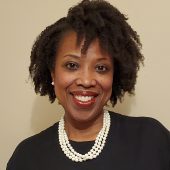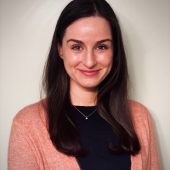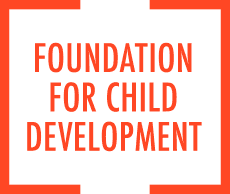https://www.fcd-us.org/may-2021-webinars/
2022 Young Scholars Program LOI Webinar: A Review of the Process
https://www.youtube.com/watch?v=-mvU87gU0kU
This informational webinar covers the required Letter of Intent (LOI) process for the 2022 Young Scholars Program Call for Proposals. Foundation staff discuss the Young Scholars Program (YSP) research focus, review the LOI process, including applicant and institutional requirements.
The Foundation is currently accepting proposals for its 2022 Young Scholars Program. YSP supports scholarship for early-career researchers. The program funds implementation research that is policy- and practice-relevant, and that examines the preparation, competency, compensation, well-being, and ongoing professional learning of the early care and education workforce. Research awards are up to $225,000 for primary research and up to $180,000 for secondary data analysis.
Advancing Equity: Conducting Strengths-Based Research in Early Care & Education
This webinar focuses on utilizing a strengths-based research approach to promote equity within the early care and education field. Presenters from the Researchers Investigating Sociocultural Equity and Race (RISER) Network share ways to incorporate a strengths-based approach in research design, from developing research questions, identifying methods and measures, through data analysis and interpretation.
The fundamental principle of a strengths-based approach is that every individual, family, and community has their own set of assets that should be considered within all aspects of research design. Such an approach celebrates the racial, ethnic, cultural, and linguistic diversity of young children, their families, and communities. It seeks to understand how policies and systems might, inadvertently or intentionally, function as contributors to disparities and focuses on how to improve systems and policies.
SPEAKER BIOS
 Stephanie M. Curenton, Ph.D., is a tenured associate professor at BU Wheelock College of Education & Human Development and the director of the Center for the Ecology of Early Childhood Development (CEED). She studies the social, cognitive, and language development of low-income and minority children within various ecological contexts, such as parent-child interactions, early childhood education programs, early childhood workforce programs, and related state and federal policies.
Stephanie M. Curenton, Ph.D., is a tenured associate professor at BU Wheelock College of Education & Human Development and the director of the Center for the Ecology of Early Childhood Development (CEED). She studies the social, cognitive, and language development of low-income and minority children within various ecological contexts, such as parent-child interactions, early childhood education programs, early childhood workforce programs, and related state and federal policies.
 Marisha L. Humphries, Ph.D., is an Associate Professor and licensed clinical psychologist who engages in developmental and prevention science research that takes an integrated approach to studying African-American children’s normative and prosocial development while centering the role of race. Her work examines African-American children’s emotional and social competence, and the ways in which schools can support this development to facilitate equitable learning environments. She is committed to engaging in work that acknowledges and supports the optimal development of African American children in spite of pervasive racial inequalities.
Marisha L. Humphries, Ph.D., is an Associate Professor and licensed clinical psychologist who engages in developmental and prevention science research that takes an integrated approach to studying African-American children’s normative and prosocial development while centering the role of race. Her work examines African-American children’s emotional and social competence, and the ways in which schools can support this development to facilitate equitable learning environments. She is committed to engaging in work that acknowledges and supports the optimal development of African American children in spite of pervasive racial inequalities.
Nneka Ibekwe-Okafor, Ph.D., is a Postdoctoral Associate in the Wheelock College of Education and Human Development and a graduate Teaching Fellow at Harvard University. Her research sits at the intersection of developmental science, early childhood education and social policy.
Dr. Nneka investigates the social and environmental determinants of children’s academic development by examining how poverty, racial discrimination, structural inequalities, and educational inequities influence access to quality early care and education and the developmental outcomes of racially marginalized learners from birth to kindergarten. Her research has a particular focus on identifying protective factors across various ecological levels in efforts to promote the optimal developmental outcomes of Black children and families developing in low-income environments.
 Iheoma U. Iruka, Ph.D., is a Research Professor in the Department of Public Policy, a Fellow at the Frank Porter Graham, Child Development Institute (FPG), and Founding Director of the Equity Research Action Coalition at FPG at the University of North Carolina at Chapel Hill. Dr. Iruka is engaged in projects and initiatives focused on how evidence-informed policies, systems, and practices in the early years can support the optimal development and experiences of minoritized children and children from low-income households and communities. Her work focuses on family engagement and support, quality rating and improvement systems, and the early care and education system and programs. Dr. Iruka focuses on ensuring excellence for young diverse learners, especially Black children and their families, through the intersection of anti-bias, anti-racist, culturally grounded research, program, and policy.
Iheoma U. Iruka, Ph.D., is a Research Professor in the Department of Public Policy, a Fellow at the Frank Porter Graham, Child Development Institute (FPG), and Founding Director of the Equity Research Action Coalition at FPG at the University of North Carolina at Chapel Hill. Dr. Iruka is engaged in projects and initiatives focused on how evidence-informed policies, systems, and practices in the early years can support the optimal development and experiences of minoritized children and children from low-income households and communities. Her work focuses on family engagement and support, quality rating and improvement systems, and the early care and education system and programs. Dr. Iruka focuses on ensuring excellence for young diverse learners, especially Black children and their families, through the intersection of anti-bias, anti-racist, culturally grounded research, program, and policy.
 Jacqueline Sims, Ph.D., is a Research Scientist in the Center on the Ecology of Early Development. Her work focuses on identifying and understanding contexts and practices that support the optimal development of low-income and racially and ethnically marginalized youth.
Jacqueline Sims, Ph.D., is a Research Scientist in the Center on the Ecology of Early Development. Her work focuses on identifying and understanding contexts and practices that support the optimal development of low-income and racially and ethnically marginalized youth.

